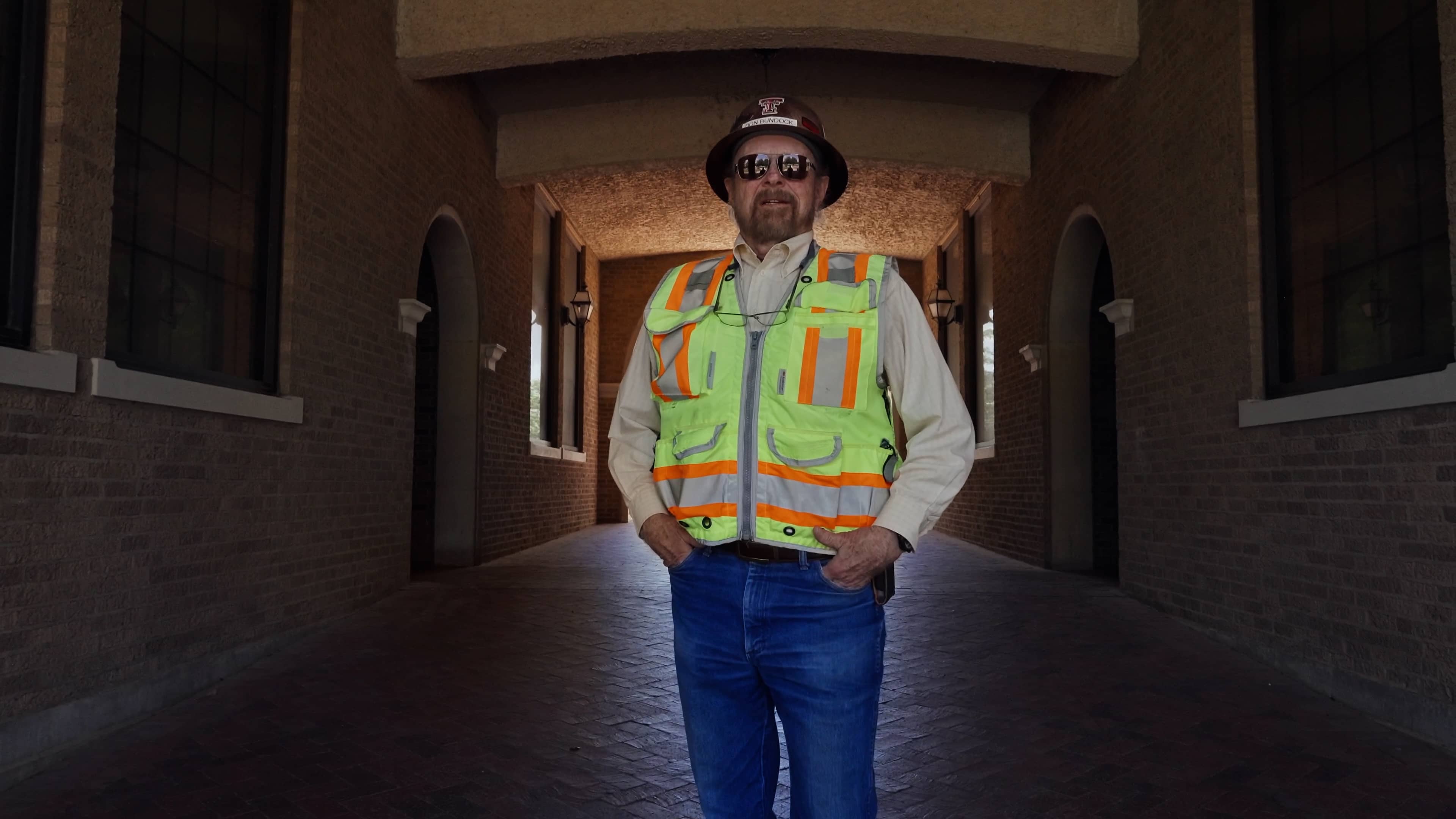
Don Bundock is a construction industry lifer.
Ask him to describe his interest and background in construction, and he’ll quickly reference a photo of him at age 4 looking attentively at a concrete pour. He’ll then mention his family history, a lineage of builders he says goes all the way back to the 15th century.
“I’m inclined to want to build things,” Bundock said, “because I come from a family of shipbuilders from the 1400s. So, I think I’m pretty much genetically inclined to be a construction guy.”
Bundock’s love of and connection to the construction trade is only rivalled by his admiration for and belonging to Lubbock and Texas Tech University.
Born and raised in the West Texas town, a place perhaps most famous for being the birthplace of early rock music legend Buddy Holly, the 80-year-old Bundock speaks with a deep Texas twang and is rarely seen without his Texas Tech ball cap comfortably fitted atop his head.
A 1969 Texas Tech graduate who went on to an illustrious engineering and construction career, including 30 years building locally in Lubbock and on the university’s campus, Bundock has spent the past seven years giving back as an instructor in the school’s Department of Civil, Environmental & Construction Engineering.

Teaching the Trade
Initially looking to ease into retirement by teaching one course, Bundock now teaches four courses encompassing 100 students. This gives him a unique front-row seat at the intersection of construction’s future workforce and contractors and other industry firms turning to the school to cultivate their next crop of talent.
Bundock is especially suited to teach the next generation of construction professionals because he embraces technology to get the job done. Bundock says he’s been keen on extensively studying how the computing revolution that paralleled his professional life could be integrated into construction.
"Bluebeam has been mentioned by just about every contractor that I’ve interviewed here at Texas Tech."
Don Bundock
Instructor
Texas Tech
“I’ll never forget a professor walking across the stage at my graduation in 1969 who said, ‘One of these days computers are going to be talking to one another all over the world,’ and everybody’s going, ‘Are you kidding?’” Bundock said.
“I was always interested in advancing technology, and that continues to this day.”
To this end, Bundock has made it a hallmark of his teaching career that his students are using the latest and greatest in construction industry technology. Chief among these tools is Bluebeam.
“[Bluebeam] has been mentioned by just about every contractor that I’ve interviewed here at Texas Tech,” he said.
From simple PDF viewing and editing to even the most advanced speciality features, Bluebeam is comprehensively taught at Texas Tech in Bundock’s courses. Bundock’s students say that having Bluebeam knowledge has been pivotal when it comes to landing summer internships.

Propelling Students Forward
For some students, having software skills is crucial because the full-time staff of the companies recruiting them aren’t always proficient with the technology, which offers the students a chance to make an immediate impact.
This was the case for Maria White, a construction engineering major and one of Bundock’s students who, as an intern for a real estate development company near Lubbock, proposed using Bluebeam for some of its advanced digital collaboration features to complete pay applications.
“The way we were previously doing pay applications is the project manager would email me, I’d print them, everything was hard copy and then I’d carry this massive file of pay applications. That was not efficient,” White recalled. “We had to find a better solution. And I was like, ‘Why don’t we use Bluebeam?’”
“Even though I was an intern, it left a lasting impact on the way the company runs things now when it comes to pay applications and just working together when people are in different places at the same time.”
Jacob Sauder, a construction management major and another of Bundock’s students, played a similar Bluebeam expert role during his project engineering internship. A vice president at his company needed a way to find similar elements throughout a 3,000-page construction document set in Bluebeam. Sauder showed him the search function in Bluebeam, which the vice president wasn’t previously aware of, and was able to help complete a task that may have previously taken hours in about a minute.
“I learned that [the Bluebeam search function] in professor Bundock’s class through having Bluebeam available to me,” Sauder said.

Building the Future
Bundock says that the importance of technology is validated through his observations of employers that attend Texas Tech job fairs on campus. As soon as companies see Bluebeam and other high-level industry software tools on students’ CVs, they immediately want to talk to them about internships and other job opportunities after college.
“That’s what we want to see happening, where our students are getting credit for what they’re doing here at Texas Tech and they’re getting four and five job offers each,” Bundock said.
Bundock says he’s proud of the role Texas Tech is continuing to play by imparting its students with innovative construction industry technology, including Bluebeam.
“We feel like we’re going to lead the way, and I think we’re setting the bar very high,” Bundock said. “People are going to have to jump to get ahead of us here at Texas Tech.”




